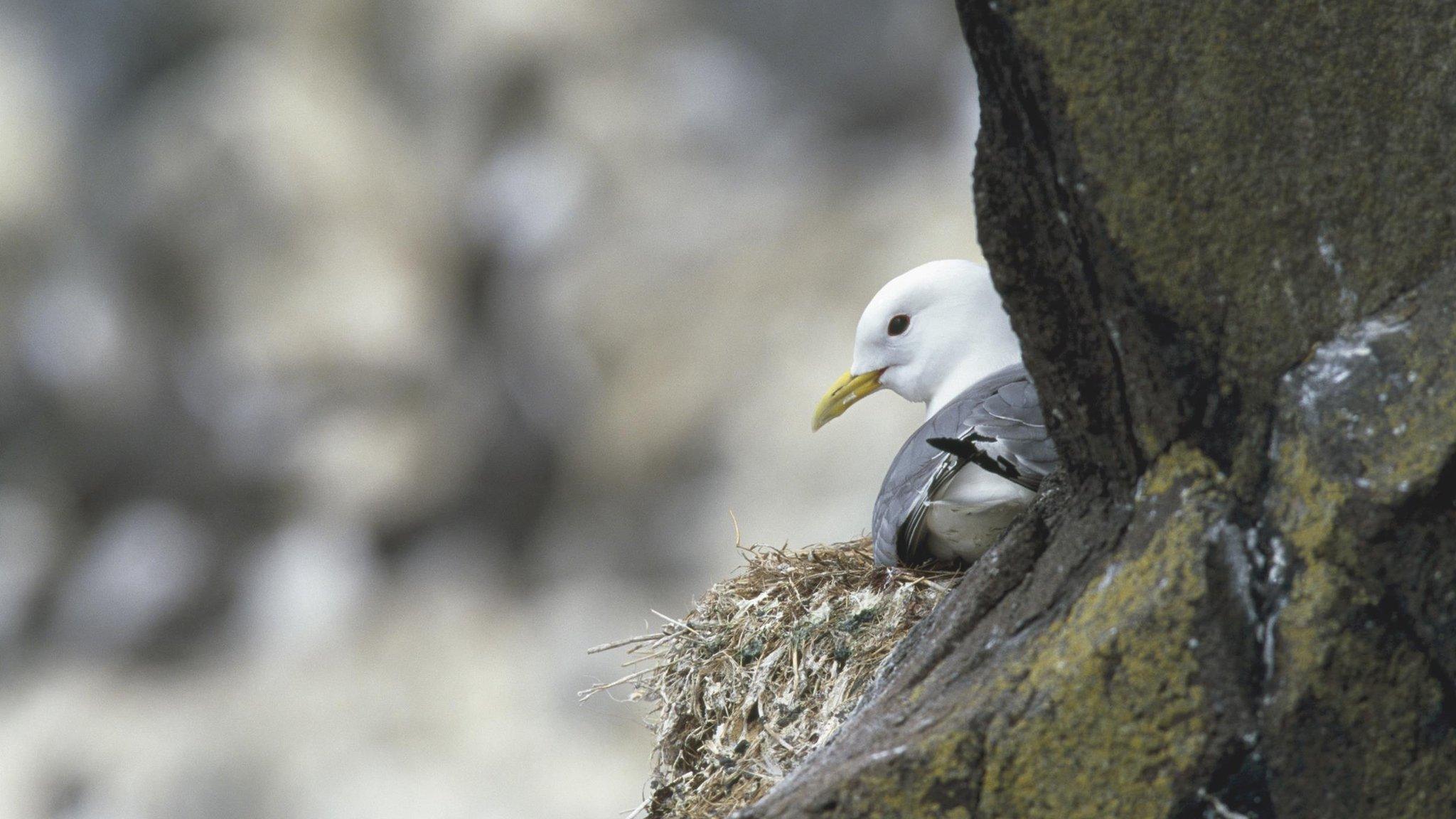Scottish seabird numbers decline a 'wake-up call'
- Published

Seabird numbers have almost halved since 1986
Almost half of Scotland's seabirds have been lost in under four decades, a study has found.
Populations dropped by 49% between 1986 and 2019 across 11 seabird species, before the current bird flu epidemic.
The report, from a coalition of more than 50 organisations, says the losses are part of a wider trend.
It says declines may be driven by agriculture, forestry and fishing as well as climate change and pollution.
The study found that Scotland is one of the most nature-depleted countries in the world, ranking 28th from bottom out of a list of 240 countries and territories. England, Wales and Northern Ireland all sit further down the rankings.
The report is described by the RSPB as the most precise review of how nature in Scotland is faring. It took evidence from 50 nature and conservation organisations and monitored 407 species of birds, mammals, plants and butterflies.
Some of the findings are bleak, with 11% of species threatened with national extinction. There has also been a decline in the distribution of flowering plants.
Bird species including Swifts, Greenfinches and Curlews have seen some of the worst declines at more than 60%, while Kestrels have declined by more than 70%.
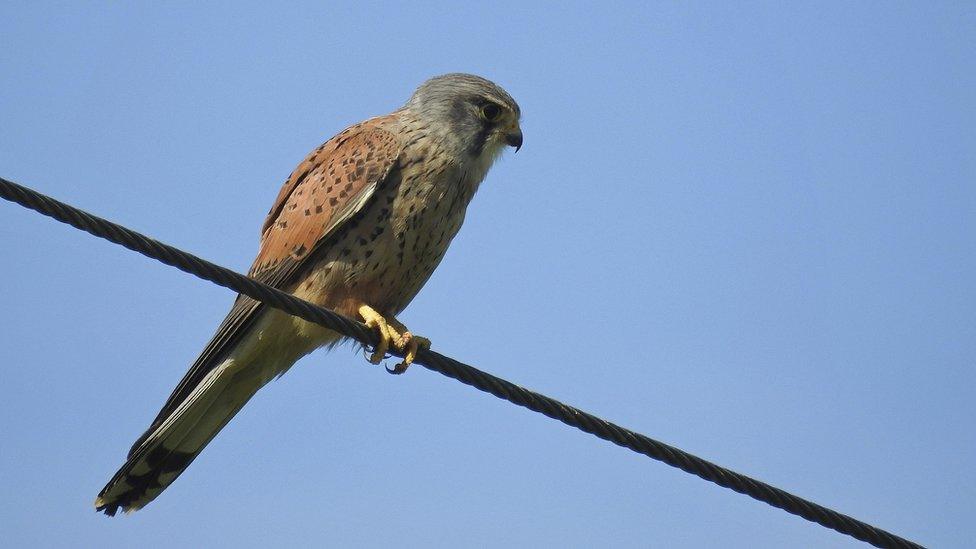
Kestrels are among the species which have seen the worst declines
Moths such as Rosy Minor, Satyr Pug and Grey Mountain Carpet have all declined by more than 90%, although butterfly numbers have increased, partially because of the warming climate pushing them north.
The Red Squirrel population remains endangered with their range shrinking by 7% from 1993 to 2016 but projects like Saving Scotland's Red Squirrels have seen numbers boosted significantly in localised areas like Aberdeen.
And the report records a number of cases where careful conservation and legislation has had a positive effect on populations of Water voles, Great-crested Newts, and the White-tailed Eagle.
Paul Walton, one of the report's authors, said: "Every time we allow a species to go into decline, or to be lost from our country, we progressively undermine the health and functions our ecosystems. This is a fundamental problem for the living world, including us.
"The findings should be a further wake-up call that, despite extraordinary efforts across our society to restore ecosystems, save species and move towards nature-friendly land and sea use, there's much more we need to do to halt and reverse the decline."
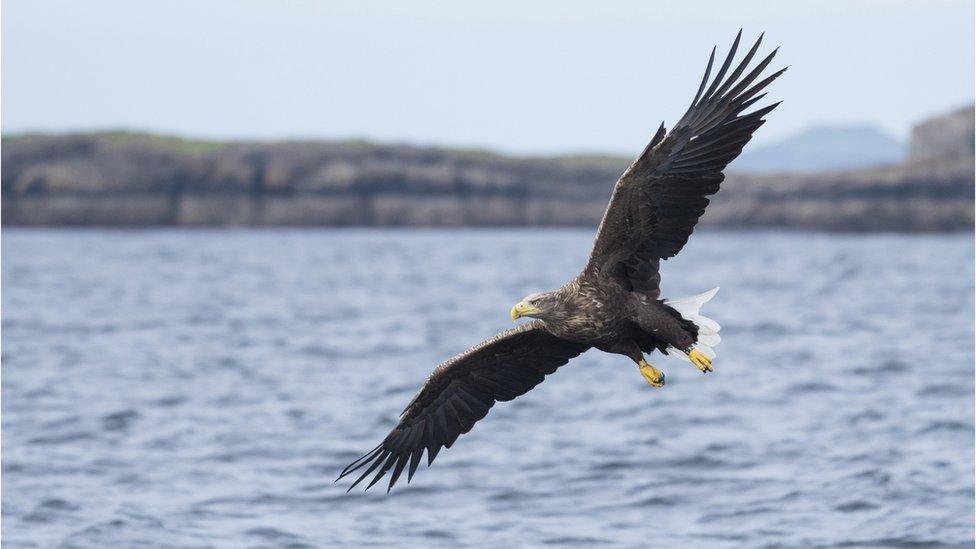
The introduction of White-tailed Eagles is seen as a success for Scotland
The report makes clear that many of the changes in Scotland's habitat and wildlife are the result of centuries of shifting land use through farming, forestry and the industrial revolution.
However, in the past decade alone, 43% of recorded species have "declined strongly."
This is the fourth assessment to be published since 2013. The study usually runs on a three-year cycle but was delayed from 2022 because of the Covid-19 pandemic.
Prof Colin Galbraith, Chair of NatureScot, said: "The State of Nature report is evidence that Scotland's nature is in crisis, but it also inspires us with what can be achieved by farmers, foresters, communities, charities and scientists when we all take the urgent action needed to protect and restore our ecosystems and species before it is too late."
The Scottish government launched a consultation on a new plan to tackle nature loss in September. It promised to accelerate the pace and scale of efforts "to address the biodiversity crisis."
Scottish Liberal Democrat climate emergency spokesman Liam McArthur said: "Almost half of species in Scotland are in decline. Meanwhile, the Scottish government has launched yet another consultation on a biodiversity strategy that was supposed to be implemented at the start of the year.
"That is not the urgency we need to see in the face of a climate and nature emergency. Hopefully, this latest report from RSPB will be the wake-up call that ministers clearly need".
Biodiversity Minister Lorna Slater said the report should leave no-one in any doubt about the damaging impact of climate change on Scotland's plants and animals.
"This crisis affects everyone - we all depend on biodiversity for food, clean water, fibres and medicines. It can also help prevent flooding, and contributes to our health and wellbeing," she said.
The minister said the Scottish Government was taking "urgent action" through its £65 million Nature Restoration Fund and £250 million peatland restoration programme.
She said the country's biodiversity strategy aims to halt biodiversity loss by 2030 and reverse declines by 2045.
Related topics
- Published1 August 2022
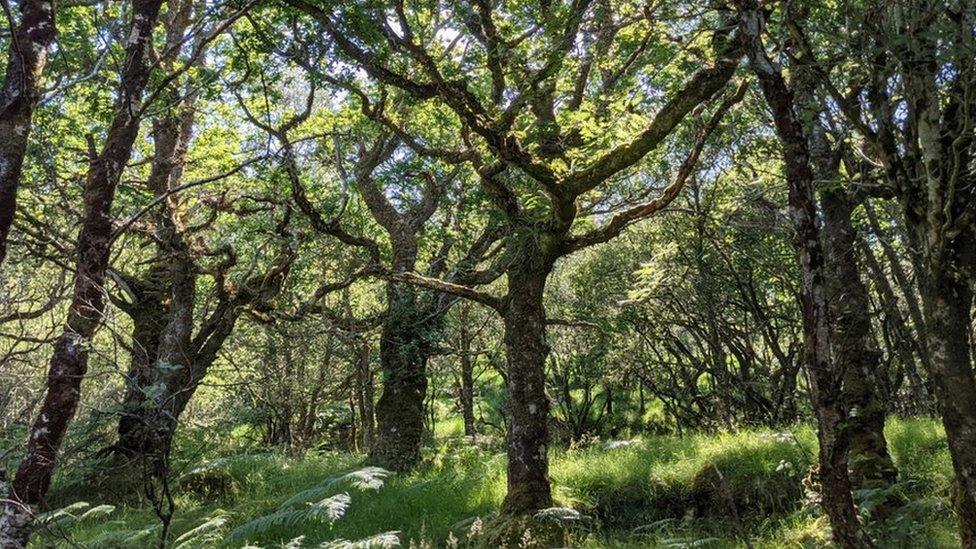
- Published8 June 2022
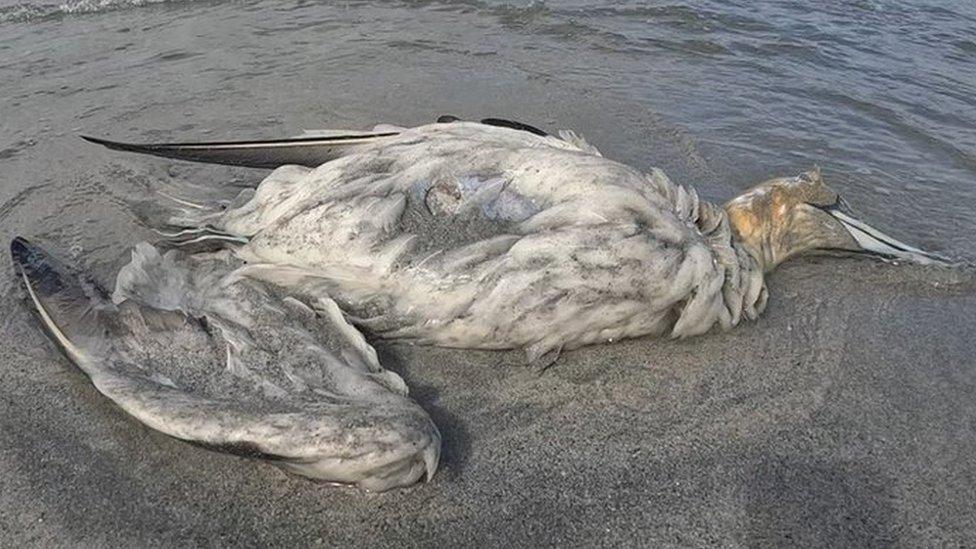
- Published15 May 2014
